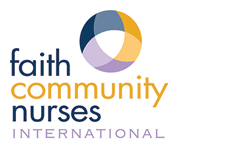Abstract
Purpose: Documentation within Faith Community Nursing is an expected aspect of the professional specialty but is under-studied. Findings in previously published studies suggest there is a lack of consistent documentation practices among FCNs. Therefore, the aim of this research study was to explore and describe documentation practices of FCNs, and identify the perceived barriers to documentation.
Methodology: This mixed methods research had both qualitative and quantitative components. The qualitative inquiry involved three live focus groups and three telephonic key informant interviews (n = 28). Conventional content analysis was used to examine all qualitative data. The quantitative inquiry involved a survey that was developed to capture the objective data related to FCNs’ demographic characteristics as well as documentation practices (n = 153).
Findings: The qualitative findings reveal that FCNs engage in the professional mandate for documentation but lack clarity for autonomous practice and nursing process expectations. The nurses attempt to capture the fullness of specialty encounters but lack supportive infrastructure and interprofessional communication. The quantitative findings indicated these nurses are a highly-educated group with bachelors and masters level education who document at least sometimes using a variety of approaches. Most had computer skills and most would use a smart phone or table application to document if appropriate software was developed specifically for FCNs.
Conclusion: Even though FCNs are aware of their documentation responsibilities, they still are not consistently documenting. The documentation largely is focused on quantity and not quality of interactions. The streamlining, standardizing, and sharing of FCN documentation could support healthcare transformation as well as provide evidence of FCN practice outcomes.
First Page
9
